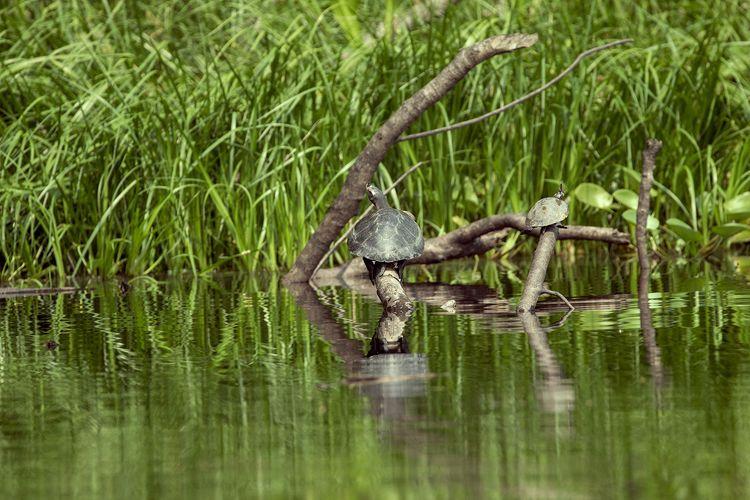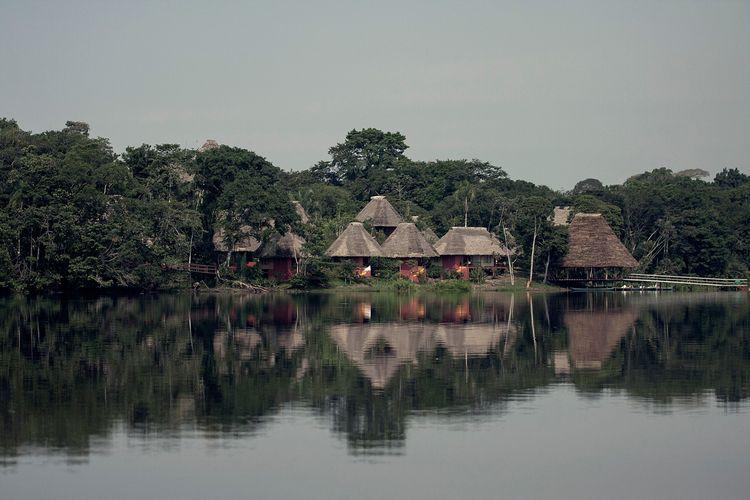Ecuador, a traditional oil country, has said yes to stopping the exploitation of deposits in the Yasuní National Park. After a decade of legal proceedings to obtain a popular consultation for the entire country, on August 20, the results came with 60% of the votes in favor of the closure. Now, civil organizations are monitoring compliance with this decision in the midst of the presidential elections.
“We know that it is something complex because it is one thing to win at the polls and another thing is for the national government to want to comply. So what we are looking for is to accelerate the process in these months to update the plan for leaving the camp,” explained Fernando Muñoz-Miño, coordination coordinator of YasUnidos, a coalition of civil organizations that promoted the popular consultation.
The abandonment of the field to which Muñoz-Miño refers consists of sealing the oil wells and dismantling the infrastructure of block 43 of the Yasuní National Park, the largest protected natural area in Ecuador in the east of the Amazon, also named a Biosphere Reserve by Unesco.
For this, the government of Ecuador will have to progressively withdraw operations and avoid granting any type of contract for activities within the block within one working year (considering only business days). In addition, PetroEcuador, the state oil company, must submit a report on how the field abandonment process will take place, which will have to be approved by the Ministry of Environment, Water and Ecological Transition.
However, in the face of the victory, the current president Guillermo Lasso was also unaware of the results of the consultation, arguing that he did not want to end oil production. As well as statements from PetroEcuador about the costs of closing the oil block.
“A process of citizen oversight is being set up, duly registered and registered with the Council for Citizen Participation to ensure that the process is carried out. In the same way, we are demanding that the presidential candidates who remained for the second round speak out about how they will enforce this popular will,” Muñoz-Miño explained.

Yasuni National Park. Photo: National System of Protected Areas of Ecuador
Between costs and processes
The decision to extract oil from Yasuní occurred on August 15, 2013. The then president of Ecuador, Rafael Correa, announced the cancellation of the Yasuní ITT initiative, a government project that aimed to keep oil from block 43 underground.
Before this cancellation, five years ago, Correa had promoted the initiative following the request of civil organizations. In exchange, he called for international cooperation to form a fund of 3.6 billion dollars to compensate for the stop to the exploitation of deposits. However, from 2007 to 2013, only 13 million were raised, so the initiative was suspended and extraction was authorized.
This authorization was accompanied by a declaration of national interest to justify entry to a protected area. This is despite not having carried out a popular consultation, an international requirement under Convention 169 on Indigenous and Tribal Peoples. The Yasuní National Park is also the region of the last indigenous groups living in isolation in Ecuador: the Tagaeri and the Taromenane.
“When the declaration was made, we began to come together (civil organizations) in a more organic way to activate a mechanism of direct democracy that is in the Constitution of Ecuador, which is the popular consultation of citizen initiative,” explained Fernando Muñoz-Miño.
To achieve this, it is necessary to collect 5% of the signatures on the electoral roll. In six months, YASUnidos managed to exceed the requested margin with 757,000 signatures. But the process was stopped when the electoral authority decided to annul most of the signatures on the grounds of alleged problems such as the type and weight of the paper.
Legal actions, including a lawsuit before the Inter-American Commission on Human Rights, succeeded in getting the Constitutional Court to order the Electoral Council to authorize the consultation that took place on August 20, in the midst of the electoral process to elect president.
After the positive result of the consultation, the current president Guillermo Lasso denied the result of the vote. In addition, PetroEcuador has also insisted that sealing the wells would represent an economic loss.
“Block 43 - ITT is a young field that could yield about 13 billion dollars, which if added to the values that communities will no longer receive and the terminations of contracts, the loss would rise,” according to statements to a local media outlet by Ramón Correa Vivanco, general manager of PetroEcuador.

Yasuni National Park. Photo: National System of Protected Areas of Ecuador
“There is a complex reading here because it is said that we do not have the resources to close the block, but we (YASUnidos) together with Ecuadorian universities show that there are many alternatives and that it is really a pretext they use to not fulfill the popular will,” said Fernando Muñoz-Miño.
Beyond the obstacles, the cessation of oil exploitation cannot be interrupted since constitutional judgments are mandatory.
Otherwise, civil organizations have the possibility of filing a lawsuit for non-compliance that could lead to the dismissal of the public official who is violating the sentence and even escalating to other authorities.
Meanwhile, YASUnidos is continuing its efforts, waiting to make progress before the change of presidency comes.


Comentarios (0)